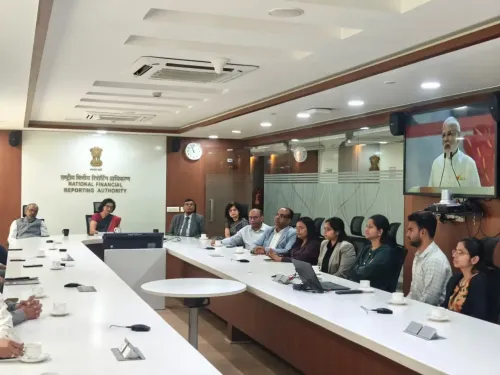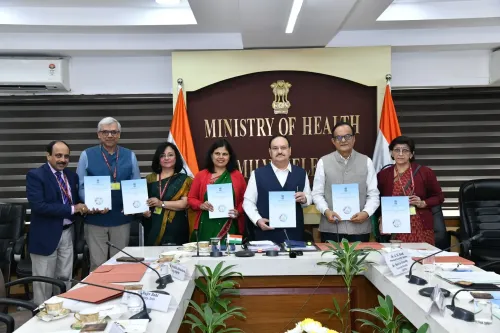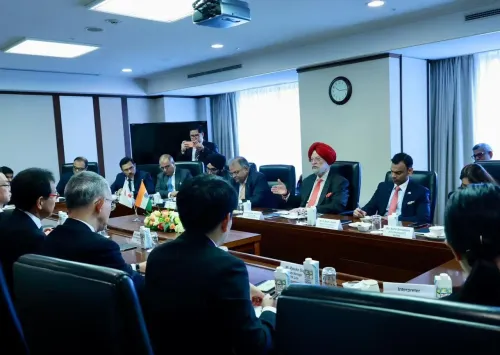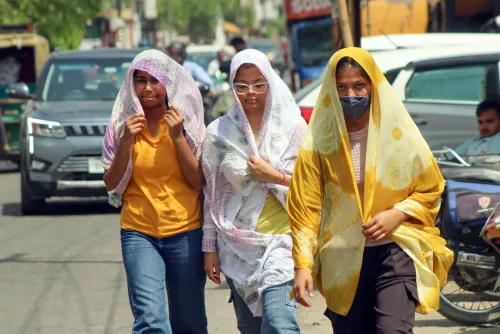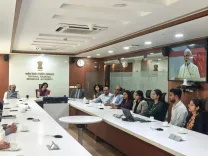Did DGCA Conduct 171 Regulatory Audits for Air Safety in 5 Years?
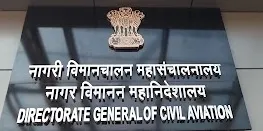
Synopsis
Key Takeaways
- The DGCA conducted 171 regulatory audits from 2020 to June 2025.
- Two incidents of turbulence and ten emergency landings were reported since January 2024.
- New Comprehensive Special Audits were mandated after a tragic Air India crash.
- Non-compliance can lead to severe penalties, including airline grounding.
- Entities audited must submit Corrective Action Plans within 15 days.
New Delhi, Aug 11 (NationPress) The Directorate General of Civil Aviation (DGCA) has conducted 171 regulatory audits from 2020 to June 2025 to uphold safety in India’s civil aviation sector, as reported to Parliament on Monday.
Since January 2024, there have been two turbulence incidents and ten emergency landings attributed to technical issues. Notably, on June 12, 2025, Air India’s Boeing aircraft VT-ANB declared MAYDAY and ultimately encountered an accident, as stated by Minister of State for Civil Aviation Murlidhar Mohol in a written response to a question in the Rajya Sabha.
The minister clarified that pilot training in India adheres to existing regulations defined in various Civil Aviation Requirements (CAR) and operational circulars, aligning with the International Civil Aviation Organisation (ICAO) standards and global best practices.
The DGCA has instituted Civil Aviation Regulations to guarantee the safe operation and upkeep of aircraft. These regulations are regularly updated to align with international standards, including those from the ICAO and the European Union Aviation Safety Agency (EASA). The DGCA modifies its regulations periodically according to ICAO guidelines, the minister remarked.
Furthermore, the minister mentioned that India has ratified the Montreal Convention, 1999, amending the Carriage by Air Act, 1972 in 2009, which outlines carrier liabilities for compensation concerning death, delay, damage, or loss of individuals, baggage, or cargo during international transport.
In response to the recent tragic Air India crash in Ahmedabad, the DGCA has mandated a new series of Comprehensive Special Audits aimed at bolstering safety across the civil aviation sector.
This audit framework will encompass all types of aviation entities, including scheduled and non-scheduled airlines, maintenance, repair and overhaul organizations (MROs), flying training schools, air navigation service providers, airport operators, and ground handling agencies.
This new audit framework will complement the ongoing regulatory audits as per the annual surveillance program and will impose stricter penalties for non-compliance, including the potential grounding of airlines.
The auditing process will unfold in three phases: a pre-audit phase lasting five to seven days, a three-to-five-day on-site audit, and a post-audit period of ten to fifteen days for analysis and follow-up. Audited entities must submit Corrective Action Plans (CAPs) within 15 days of receiving findings. The DGCA will closely oversee the execution of these plans.
Multidisciplinary audit teams, led by senior officials and supported by subject matter experts from various aviation domains, are conducting thorough inspections.
The primary focus includes Safety Management Systems (SMS), operational efficiency, adherence to regulatory frameworks, and crew and resource management protocols.
According to officials, the audit initiative was prompted by several factors, including aviation accidents, serious incidents, persistent compliance issues, and findings flagged by the ICAO.
Entities audited are required to submit Corrective Action Plans (CAPs) within 15 days of receiving findings. The DGCA will closely monitor the implementation of these plans.
The DGCA has made it clear that failing to comply with audit recommendations could result in penalties, including suspension of operations or even cancellation of licenses in cases of safety norm violations.

